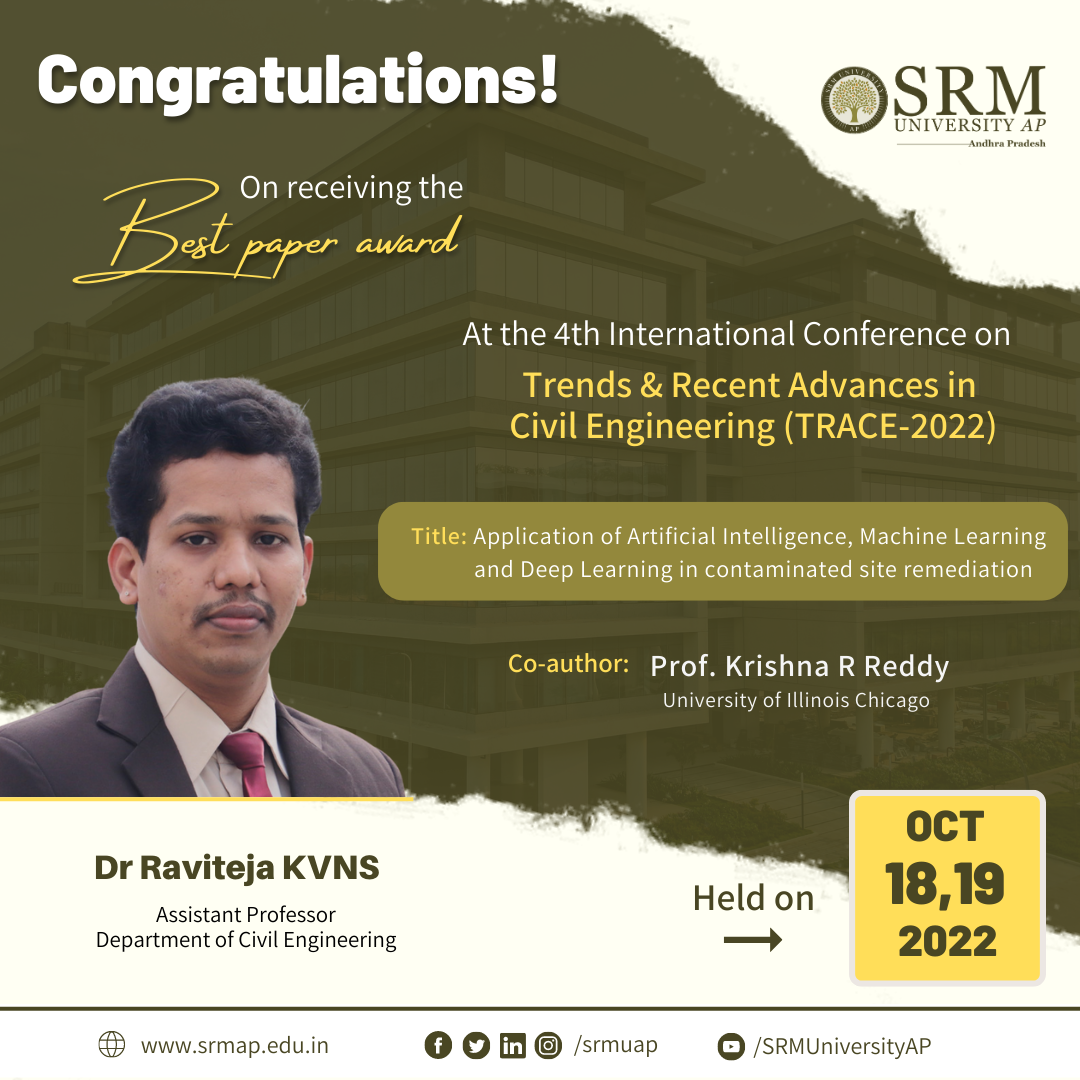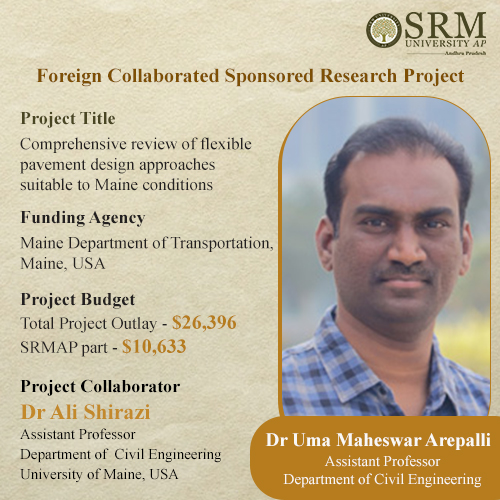Recent News
- Dr Raviteja KVNS Received the Best Paper Award at TRACE 2022 December 16, 2022
 Soil and groundwater contamination is closely interlinked with human society because of its direct impact on population health and socioeconomic activities. The design and implementation of site remediation can be expensive, time-consuming, and may require much human effort. Emerging technologies such as Artificial Intelligence, Machine Learning, and Deep Learning have the potential to make site remediation cost-effective with reduced human effort.
Soil and groundwater contamination is closely interlinked with human society because of its direct impact on population health and socioeconomic activities. The design and implementation of site remediation can be expensive, time-consuming, and may require much human effort. Emerging technologies such as Artificial Intelligence, Machine Learning, and Deep Learning have the potential to make site remediation cost-effective with reduced human effort.Assistant Professor Dr Raviteja KVNS, Department of Civil Engineering, has received the Best Paper Award at the Fourth International Conference on Trends and Recent Advances in Civil Engineering (TRACE) 2022 for his paper Application of artificial intelligence, machine learning and deep learning in contaminated site remediation. The conference was held at Amity University, Uttar Pradesh, on October 18 and 19, 2022. His research reports the applications of AI and ML in contaminated site remediation.
Dr Raviteja’s future research plan includes studying potential applications of various AI, ML and DL techniques for Geotechnical and Geo-environmental design and testing applications so as to reduce the labours of physical and repetitive testing and associated human effort. This further improves precision as well as aids in decision-making. He has collaborated with Prof. Krishna R Reddy, University of Illinois Chicago, for this research work.
Abstract
Soil and groundwater contamination is caused by improper waste disposal practices and accidental spills, posing a threat to public health and the environment. It is imperative to assess and remediate these contaminated sites to protect public health and the environment as well as to assure sustainable development. Site remediation is inherently complex due to the many variables involved, such as contamination chemistry, fate and transport, geology, and hydrogeology. The selection of remediation method also depends on the contaminant type and distribution and subsurface soil and groundwater conditions. Depending on the type of remediation method, many systems and operating variables can affect the remedial efficiency. The design and implementation of site remediation can be expensive, time-consuming, and may require much human effort. Emerging technologies such as Artificial Intelligence, Machine Learning, and Deep Learning have the potential to make site remediation cost-effective with reduced human effort. This study provides a brief overview of these emerging technologies and presents case studies demonstrating how these technologies can help contaminated site remediation decisions.
- Dr Uma Maheswar to work on an overseas-funded project August 24, 2022

Yet another moment of pride and honour for SRM University-AP as Dr Uma Maheswar Arepalli, Assistant Professor, Department of Civil Engineering in collaboration with Dr Ali Shirazi, Assistant Professor, Department of Civil Engineering, University of Maine, USA received a research project award from the Maine Department of Transportation, Maine, USA. The project titled “Comprehensive review of flexible pavement design approaches suitable to Maine conditions” received a total project outlay of $26,396 (Rs. 21.12 Lakhs).
This is the first of its kind project in India that receives funding directly from the foreign (United States) entity unlike the typical Department of Science & Technology (DST) International Bilateral Joint Project Schemes. This 8-month-long project will review the various existing flexible pavement design approaches in the USA and will provide recommendations to the Department of Transportation on a suitable design approach conducive to the conditions of Maine.
The outcome of the project will help the Department of Transportation to decide on a suitable pavement design approach that enhances the performance of pavements in Maine. The project engenders an opportunity for two under-graduate students of SRM University-AP to work as paid interns and receive international exposure in their prospective research areas. It also involves the scope for industry translatory research.
Continue reading →

